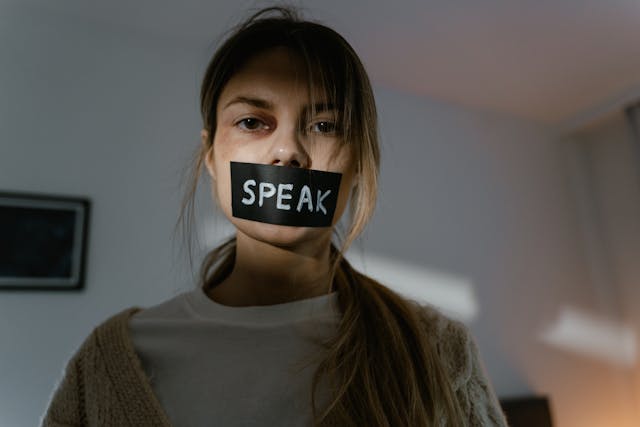4 Tactics the Prosecution Uses in Domestic Violence Cases

Strong 8k brings an ultra-HD IPTV experience to your living room and your pocket.
Domestic violence cases are among the most challenging legal battles, not just because of their emotional stakes but also due to the strategic maneuvers often deployed by the prosecution.
These cases typically involve the most serious types of charges, with prosecutors aiming to protect the alleged victim while securing a conviction. Beyond the legal complexities, these cases carry profound social consequences for the accused.
Prosecutors build their cases using evidence and legal tools in ways that amplify the gravity of the accusations. In this blog, we are going to look at four common prosecution tactics that defendants in domestic violence cases should be prepared to face.
1. Pushing for Protective Orders
One of the prosecution's first moves is often requesting a protective order, which forbids the defendant from contacting the alleged victim. Protective orders are presented as necessary safety measures, but they can also serve as strategic tools for the prosecution. This is because when they reconcile, the case is immediately closed.
Therefore, by isolating the defendant from the victim, these orders prevent any form of future reconciliation or clarification of events. Moreover, any perceived violation of the protective order can lead to additional charges, even if the contact was accidental or consensual.
Prosecutors might argue that these violations indicate a pattern of disregard for the law, further painting the defendant as a threat. Understanding the strict limitations of protective orders is critical to avoiding unintentional breaches.
2. Highlighting a History of Violence
If the defendant has prior incidents involving violence, even those unrelated to domestic disputes, the prosecution often attempts to introduce this history as evidence. The goal is to establish a pattern of aggressive behavior, even if the past incidents were unrelated or minor.
While the defense can challenge the admissibility of such evidence, its impact on a jury can be significant. By associating past actions with the current allegations, prosecutors create a narrative of recurring violent tendencies, making it harder for the defendant to present a clean slate.
This tactic underscores the importance of a comprehensive defense strategy that addresses past accusations head-on.
3. Recorded Communications
Prosecutors frequently scrutinize jailhouse phone calls or other recorded communications for any statements that could imply guilt or intimidation.
For instance, a seemingly innocent remark to a friend or family member could be interpreted as an attempt to manipulate witnesses or the victim.
Additionally, even casual conversations can be taken out of context to support the prosecution's case. These recordings are presented as objective evidence, making them difficult to dispute in court.
Defendants must exercise extreme caution in their communications, especially when discussing the case, to avoid further strengthening the prosecution's argument.
4. Accusing The Defendant of Lying
Another kind of prosecution strategy is undermining the defendant’s credibility. Prosecutors will scrutinize inconsistencies in the defendant’s statements, behaviors, or history, using any discrepancies to argue that the accused is untrustworthy.
This tactic is particularly effective in domestic violence cases, which often lack physical evidence and rely heavily on testimony.
By framing the defendant as unreliable, prosecutors shift the focus away from the victim's credibility and onto the accused. This tactic can be devastating if not effectively countered by the defense, as it creates a narrative of deceit that resonates with jurors.
Conclusion
Domestic violence cases can be complex and involve strong feelings and aggressive legal strategies. Prosecutors use the above-listed tactics to build and strengthen their cases. These tactics aim to influence how people view the accused, so defendants need to understand these strategies and respond effectively.
Knowing how prosecutors work is crucial. A strong defense can challenge protective orders, provide different explanations for recorded statements, and question the relevance of past incidents.
To build this defense, one needs to understand legal principles, think strategically, and seek skilled legal help.
Note: IndiBlogHub features both user-submitted and editorial content. We do not verify third-party contributions. Read our Disclaimer and Privacy Policyfor details.







